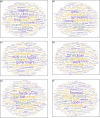A Machine-Learning Analysis of the Impacts of the COVID-19 Pandemic on Small Business Owners and Implications for Canadian Government Policy Response
- PMID: 36039356
- PMCID: PMC9395163
- DOI: 10.3138/cpp.2021-018
A Machine-Learning Analysis of the Impacts of the COVID-19 Pandemic on Small Business Owners and Implications for Canadian Government Policy Response
Abstract
This study applies a machine-learning technique to a dataset of 38,000 textual comments from Canadian small business owners on the impacts of coronavirus disease 2019 (COVID-19). Topic modelling revealed seven topics covering the short- and longer-term impacts of the pandemic, government relief programs and loan eligibility issues, mental health, and other impacts on business owners. The results emphasize the importance of policy response in aiding small business crisis management and offer implications for theory and policy. Moreover, the study provides an example of using a machine-learning-based automated content analysis in the fields of crisis management, small business, and public policy.
Cette étude applique une technique d’apprentissage automatique à un ensemble de données de 38 000 commentaires publiés par des propriétaires de petites entreprises canadiennes sur les impacts de la maladie à coronavirus 2019 (COVID-19). La modélisation thématique a révélé sept sujets couvrant les effets de la pandémie à court et à long terme, les programmes d’aide gouvernementaux, les questions d’admissibilité aux prêts, la santé mentale ainsi que d’autres retombées sur les propriétaires d’entreprise. Les résultats soulignent l’importance d’une intervention politique pour aider les petites entreprises à gérer la crise et offrent des implications pour la théorie et la politique. En outre, l’étude fournit un exemple d’utilisation d’une analyse automatisée de contenu basée sur l’apprentissage automatique dans les domaines de la gestion de crise, des petites entreprises et de la politique publique.
Keywords: COVID-19 crisis management; Canada; impacts; small business; topic modelling.
© Canadian Public Policy / Analyse de politiques.
Figures




References
-
- Asgary, A., Anjum M.I., and Azimi N.. 2012. “Disaster Recovery and Business Continuity after the 2010 Flood in Pakistan: Case of Small Businesses.” International Journal of Disaster Risk Reduction 2:46–56. 10.1016/j.ijdrr.2012.08.001. - DOI
-
- Asmussen, C.B., and Møller C.. 2019. “Smart Literature Review: A Practical Topic Modelling Approach to Exploratory Literature Review.” Journal of Big Data 6(1):93. 10.1186/s40537-019-0255-7. - DOI
-
- Bartik, A.W., Bertrand M., Cullen Z.B., Glaeser E.L., Luca M., and Stanton C.T.. 2020. “How Are Small Businesses Adjusting to COVID-19? Early Evidence from a Survey.” Working Paper No. w26989, National Bureau of Economic Research, Cambridge, MA.
-
- Blei, D., Ng A., and Jordan M.. 2003. “Latent Dirichlet Allocation.” Journal of Machine Learning Research 3:993–1022.
LinkOut - more resources
Full Text Sources
